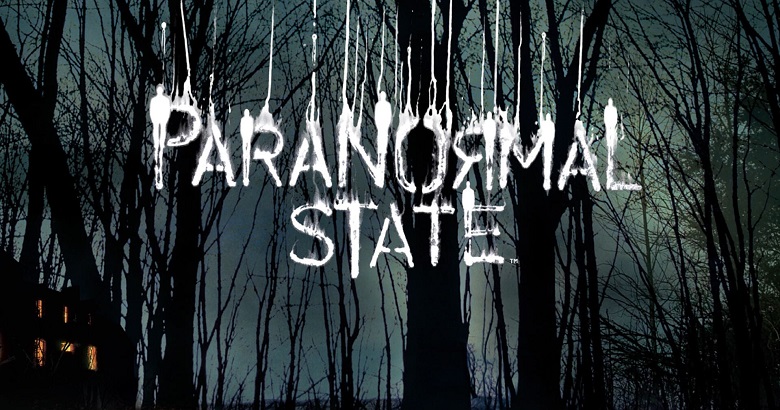Paranormal books have long engaged readers with their exploration of the unknown, blending elements of mystery, fantasy, and sometimes horror. But what exactly defines this intriguing genre? Let’s understand the characteristics that make a book paranormal, its various subgenres, and why it continues to enchant audiences worldwide.
What is A Paranormal Book?
At its essence, the paranormal genre involves elements that defy explanation by conventional science. These books often explore phenomena such as ghosts, telepathy, extraterrestrial life, and other supernatural occurrences. The key is the presence of elements that go beyond the ordinary and into the extraordinary.
Blending Reality with the Supernatural
Paranormal books often exist at the intersection of the real and the unreal. They typically weave supernatural elements into a realistic setting, allowing readers to suspend disbelief and imagine a world where the impossible becomes possible. This blend creates a compelling narrative that challenges the boundaries of reality.
Key Elements of Paranormal Books
Supernatural Entities
One of the defining features of paranormal books is their focus on supernatural entities. These can include ghosts, vampires, werewolves, witches, and other mythical beings. The portrayal of these entities often explores themes of immortality, otherworldly powers, and the coexistence of humans with the supernatural.
Unexplained Phenomena
Paranormal literature frequently delves into unexplained phenomena that defy scientific understanding. This could involve telekinesis, psychic abilities, or encounters with extraterrestrial beings. Such elements add an air of mystery and intrigue, keeping readers engaged and curious about the unknown.
Atmospheric Settings
The setting plays a crucial role in establishing the mood of a paranormal book. Dark, eerie, or mysterious environments enhance the story’s supernatural aspects. Whether it’s a haunted mansion, a fog-covered forest, or an abandoned asylum, the setting amplifies the sense of suspense and wonder.
Complex Characters
Paranormal books often feature characters with deep and complex backgrounds. These characters might grapple with inner demons, possess unique abilities, or navigate a world where they don’t quite fit. Their development is integral to the story, providing emotional depth and relatability.
Subgenres of Paranormal Books

Paranormal Romance
Paranormal romance combines elements of the supernatural with romantic storylines. These books often feature relationships between humans and supernatural beings, exploring themes of love, identity, and the challenges of bridging two worlds. Popular examples include the “Twilight” series and “A Discovery of Witches.”
Paranormal Thriller
Paranormal thrillers infuse suspense and mystery with supernatural elements. These stories often involve protagonists uncovering secrets, solving mysteries, or battling malevolent forces. The tension and fast-paced plots keep readers on the edge of their seats.
Paranormal Fantasy
Paranormal fantasy blends magical or supernatural elements with fantastical worlds. These books often include mythical creatures, enchanted realms, and epic quests. The genre allows for creative storytelling and imaginative world-building, offering readers an escape into magical landscapes.
Paranormal Horror
Paranormal horror focuses on the terrifying aspects of the supernatural. These books aim to evoke fear and suspense through encounters with ghosts, demons, or other malevolent entities. The horror elements are often psychological, exploring human fears and the unknown.
Historical Paranormal
Historical paranormal books set supernatural stories in historical contexts. These novels blend historical accuracy with fantastical elements, creating a unique narrative that explores both the past and the supernatural. This subgenre adds depth to historical events by introducing elements beyond human comprehension.
The Appeal of Paranormal Books
Exploration of the Unknown
Paranormal books satisfy the human curiosity about the unknown and the unexplainable. They offer a glimpse into worlds where the boundaries of reality are blurred, encouraging readers to question what they know and explore the possibilities beyond.
Emotional Engagement
The emotional depth found in paranormal stories is another draw for readers. In extraordinary circumstances, characters often grapple with complex emotions, such as fear, love, and loss. This emotional engagement allows readers to connect with characters on a profound level.
Escapism and Imagination
For many, paranormal books provide an escape from the mundane. The fantastical elements and imaginative storytelling transport readers to otherworldly realms, offering a break from the routine and a chance to immerse themselves in the extraordinary.
Cultural Reflections
Paranormal literature often reflects cultural beliefs and traditions. It can explore how different societies perceive the supernatural, providing insight into cultural values and fears. This cultural reflection enriches the narrative, offering readers a deeper understanding of diverse perspectives.
The Evolution of Paranormal Literature
Historical Roots
Paranormal literature has roots in folklore and mythology, where stories of ghosts, spirits, and mythical creatures were passed down through generations. These tales laid the foundation for modern paranormal narratives, evolving to reflect contemporary themes and concerns.
Modern Trends
In recent years, the paranormal genre has expanded to include diverse voices and perspectives. Authors are exploring themes of identity, social issues, and cultural diversity within paranormal contexts, enriching the genre and broadening its appeal.
Influence of Technology
The rise of technology has also influenced paranormal literature. Modern stories might explore themes of digital hauntings, AI consciousness, or the intersection of technology and the supernatural, reflecting contemporary societal changes and fears.
Why Paranormal Books Matter

Challenging Perceptions
Paranormal books encourage readers to challenge their perceptions of reality and consider possibilities beyond the tangible world. They inspire curiosity and open-mindedness, fostering a sense of wonder and exploration.
Cultural Reflection
These books often reflect cultural beliefs and societal fears, providing insight into how different cultures understand and interpret the supernatural. They serve as a mirror for societal values and anxieties, offering a unique lens through which to view the human experience.
Inspiring Creativity
The limitless nature of the paranormal genre inspires creativity among writers and readers alike. It encourages imaginative thinking and storytelling, pushing the boundaries of what literature can achieve.
Building Community
Paranormal literature often fosters vibrant communities of fans and enthusiasts. Book clubs, online forums, and conventions allow readers to connect, share their love for the genre, and explore diverse interpretations of paranormal themes.
Wrapping Up
Paranormal books captivate with their exploration of the mysterious and the supernatural. By blending reality with the extraordinary, they offer readers an escape into worlds where the impossible becomes possible. Whether through romance, thrillers, or fantasy, the genre continues to enchant audiences with its imaginative storytelling and emotional depth. As society evolves, so too does the paranormal genre, reflecting diverse voices and cultural perspectives. Ultimately, paranormal books invite readers to explore the unknown, challenge their perceptions, and embrace the wonders of the imagination.
Frequently Asked Questions
1. How do paranormal books differ from fantasy novels?
Paranormal books blend supernatural elements with realistic settings, focusing on phenomena like ghosts, telepathy, and otherworldly occurrences. They often occur in a world similar to ours, where the supernatural intrudes into everyday life. In contrast, fantasy novels typically involve entirely fictional worlds with their own rules, magic systems, and mythical creatures. The key difference lies in the setting, and the integration of the supernatural—paranormal books maintain a closer connection to reality.
2. Why are atmospheric settings crucial in paranormal books?
Atmospheric settings are essential because they enhance the supernatural elements, creating a sense of suspense and mystery. These settings—such as haunted houses, foggy forests, or abandoned asylums—provide a backdrop that amplifies the eerie and unknown. They immerse readers in a world where the supernatural feels tangible and real, heightening emotional engagement and allowing readers to fully experience the tension and wonder of the story.
3. How do paranormal books reflect cultural beliefs?
Paranormal books often explore societal fears and traditions, offering insight into how different cultures perceive the supernatural. These stories can reflect cultural values, myths, and anxieties, mirroring society’s beliefs about life, death, and the unknown. Paranormal literature incorporates folklore and traditional supernatural elements and provides a rich tapestry of cultural reflection and commentary.
4. What role do complex characters play in paranormal literature?
Complex characters are crucial as they provide emotional depth and relatability. These characters often grapple with inner conflicts, unique abilities, or a sense of not fitting in, which makes their journeys compelling. Readers connect with these characters on a personal level as they face extraordinary challenges and navigate a world filled with supernatural elements. This connection enhances the reading experience, making the fantastical elements feel grounded and meaningful.
5. How has technology influenced modern paranormal literature?
Technology has introduced new themes such as digital hauntings, AI consciousness, and the intersection of technology and the supernatural. These elements reflect contemporary fears and societal changes, expanding the genre to include modern possibilities. Authors now explore how technological advancements interact with age-old paranormal themes, creating fresh narratives that resonate with today’s tech-savvy readers and adding complexity to traditional supernatural tales.

